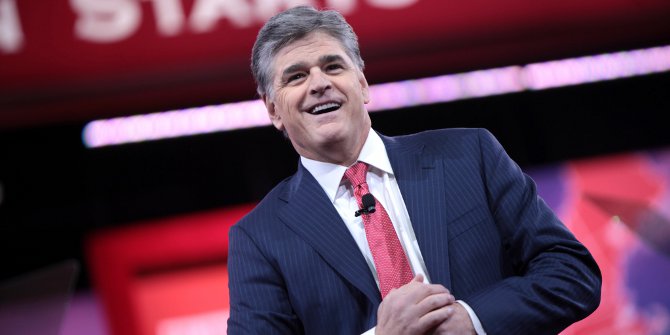 Despite the offensive remarks, scandals and even criminal indictments that would have ended the careers of other politicians, Donald Trump continues to have massive appeal to a considerable number of American voters, more than eight years after he announced his successful 2016 presidential campaign. Gunn Enli writes that Trump’s performance has been meticulously crafted to show traits that his supporters value: consistency, spontaneity, ordinariness, outspokenness, and outsider status. This strategic authenticity, she writes, erodes the principle of democratic accountability, and can give rise to demagoguery and normalizes extreme partisanship.
Despite the offensive remarks, scandals and even criminal indictments that would have ended the careers of other politicians, Donald Trump continues to have massive appeal to a considerable number of American voters, more than eight years after he announced his successful 2016 presidential campaign. Gunn Enli writes that Trump’s performance has been meticulously crafted to show traits that his supporters value: consistency, spontaneity, ordinariness, outspokenness, and outsider status. This strategic authenticity, she writes, erodes the principle of democratic accountability, and can give rise to demagoguery and normalizes extreme partisanship.
As the United States edges closer to the 2024 presidential election, the enigma of Donald Trump’s sustained appeal among Republican voters intensifies. Despite a slew of scandals and legal challenges, Trump’s image remains remarkably untarnished to his ardent base. This phenomenon has less to do with conventional campaign strategies and more with his portrayal as the ‘authentic outsider’—a character that appears to resonate deeply with a significant segment of the electorate.
Why Trump’s authenticity is attractive to voters
Trump’s perceived authenticity, a rarity in the polished realm of politics, has been a cornerstone of his unexpected 2016 triumph and remains a potent force as he positions himself at the forefront of the upcoming race. But what underpins this connection with voters, and why is it problematic for the health of our democracy?
At the heart of Trump’s relationship with his base is a performance that has been meticulously crafted to exhibit traits which are valued by his supporters: consistency, spontaneity, ordinariness, outspokenness, and outsider status.
- Consistency: In the eyes of the public, authenticity is often synonymous with predictability. Trump has mastered this perception; his unchanging demeanor and rhetoric signal to his followers a steadfastness that garners trust.
- Spontaneity: The spontaneous individual is seen as genuine, someone who does not hide their true emotions. Trump’s impromptu style, seemingly unfiltered by advisers or scripts, resonates as authenticity, portraying him as someone loyal to his convictions.
- Ordinariness: Despite his wealth, Trump’s ordinariness—his “blue-collar billionaire” persona—connects with those who feel forgotten by the elites. His simple tastes and habits give the impression that he understands the life of the average American.
- Outspokenness: In a political climate dominated by carefully curated messages, Trump’s frankness stands out. His willingness to breach the boundaries of political correctness is mistaken by some as a refreshing dose of honesty.
- Outsider Status: Despite having been President of the United States – the ultimate insider – Trump’s outsider image serves as an advantageous foil against the establishment, enabling him to critique the political system without being associated with its past failures.
Why Trump’s authenticity is problematic for democracy
This strategic performance of authenticity is not without its perils. The problem arises when authenticity is conflated with virtue. Being perceived as authentic gives Trump a troubling latitude to engage in behavior and rhetoric that, under traditional scrutiny, would be considered unacceptable or even reprehensible. His ‘authentic’ persona allows him to navigate past scandals and missteps with an ease not afforded to traditional politicians.

“Santiago Abascal en la CPAC en Washingto” (Public Domain) by VOX España
But why is this a concern for democracy? Authenticity, in the way Trump embodies it, gives him a ‘free pass’ to push the boundaries of acceptable conduct without the usual political consequences. This dynamic creates a dangerous precedent where divisive or harmful actions and statements are not only overlooked but are seen as evidence of a politician’s realness. This erodes the foundational democratic principle that leaders are accountable to the people and must adhere to standards of decency and respect.
Moreover, the authenticity guise can mask underlying motives and objectives, allowing a leader to manipulate public sentiment without being transparent about their intentions. It can give rise to demagoguery, where emotional appeal supersedes rational debate and factual discourse—a direct threat to the principles of democratic deliberation.
Trump’s ‘authentic’ performance, while a powerful political tool, poses risks to the social fabric by normalizing extreme partisanship and by undermining the shared values and respectful discourse that underpin a healthy democracy. It challenges us to reconsider what we value in our leaders and to discern the difference between authentic representation and calculated persona.
Critically engaging with Trump’s appeal
As Trump leverages his perceived authenticity in the lead-up to the 2024 election, it is incumbent upon voters, commentators, and policymakers to critically engage with what this means for the future of American democracy. The authenticity factor, while appealing to many, must be weighed against the potential damage to democratic norms and the societal harm that can arise when divisive behavior is given a veneer of legitimacy.
In analyzing Trump’s robust appeal, it’s essential to recognize that while authenticity can draw people closer to political figures, it can also dangerously blur the lines between honest bluntness and destructive rhetoric. As voters and as active participants in our democracy, we must be discerning. We must question whether our leaders’ ‘authentic’ personas truly serve the public interest or whether they simply embolden them to flout democratic norms with impunity.
The allure of the authentic outsider is potent. It speaks to a deep-seated disillusionment with the political establishment and a yearning for change. Yet, in this quest for authenticity, we must be wary of sacrificing the principles of respect, truth, and decency that are the bedrock of our democratic life. We must not allow the performance of authenticity to become a smokescreen for actions that ultimately undermine the very democracy that allows such expressions of individuality.
As we approach the next presidential election, it is vital to remember that democracy thrives on accountability, informed debate, and the respectful exchange of ideas. The authenticity paradox, as exemplified by Trump, is a test of our collective commitment to these ideals. Let us rise to the occasion by advocating for a political landscape where authenticity is not a free pass for damaging rhetoric, but a call to genuine service and democratic engagement.
Critical engagement with the concept of authenticity in political life is crucial, especially as it influences the American democratic process. The implications are far-reaching and warrant a thoughtful examination as we continue to shape the narrative of our nation’s political future.
- This article is based on the paper, ‘Populism as “Truth”: How Mediated Authenticity Strengthens the Populist Message’ in The International Journal of Press/Politics.
- Please read our comments policy before commenting.
- Note: This article gives the views of the author, and not the position of USAPP – American Politics and Policy, nor the London School of Economics.
- Shortened URL for this post: https://wp.me/p3I2YF-dE0






